- Home
- Heather Graham
The Evil Inside (Krewe of Hunters) Page 2
The Evil Inside (Krewe of Hunters) Read online
Page 2
As she walked across the common, her attention was drawn back to the children. A group of five-to seven-year-olds were holding hands, running in a circle and playing a game.
She froze as she heard them reciting the old rhyme repeated not just in this area, but around the country.
Oh, Lexington, he loved his wife,
So much he kept her near.
Close as his sons, dear as his life;
He chopped her up;
He axed them, too, and then he kept them here.
Duck, duck, wife!
Duck, duck, life!
You’re it!
Jenna felt as if ice water had suddenly been injected in her veins—the old ditty now seemed to be words of mockery and cruelty. A young woman, who had been standing with another group of parents watching over small children and a group of older teens who had gathered in the park, rushed forward. She caught hold of the little boy’s arms, spun him around and shook a finger at him, reprimanding him.
Another of the mothers came hurrying over to her, her voice carrying in the cool air. “Cindy, don’t be so hard on them! They don’t…know. We used to say that rhyme all the time when we were kids.”
“Samantha, I know, it’s just that…now? Now, with what’s happened again? It’s that house! That horrible house, and that boy… He used to go to school with our kids.”
“But, it’s over now, Cindy. It’s over. They have the boy in custody.”
Other parents began calling out sharply to their children. The two women herded the children toward the group of parents. A tall man in the group said something sharply to the teens, words that Jenna couldn’t quite hear, and they disbanded, as well. The conversation they all exchanged became whispers. The families and the unattached teens began to drift away, as if none of them wanted the reality of the situation.
The great seafaring days of Salem were in the past. The city survived on tourism, and most of it wasn’t because of the autumn leaves. Salem had been the site of the infamous Salem Witch Trials—and it had also been the site of two horrendous and savage murdering sprees.
And, now, a third.
Tragic incidences of human ignorance and brutality in the past were one thing; bloodletting in the present was quite another, especially with the town anticipating the season’s mammoth number of visitors. The income generated by the holiday alone could sustain many a shopkeeper and inn through the brutal New England winter to follow.
Of course, for Uncle Jamie, the recent tragedy would not be in any way fiscal but personal. She knew Jamie and loved him dearly, because he was a man who took the troubles of others to heart. This was often to his own detriment, but that was Jamie.
From her vantage spot, she could see the Salem Witch Museum with its English Gothic facade across the street on North Washington Square—the point where she always told friends to begin their exploration of the city. In a comparatively short presentation, the museum did a fine job of explaining the climate of the city during the days of the infamous trials. The statue of Roger Conant, town founder, stood proud before her as well, larger than life, his heavy cape appearing to blow in the same breeze that tossed the leaves about.
The residences and businesses surrounding the common were decked out for fall. Pumpkins and black cats adorned windows and lawns, while skeletons and, naturally, witches dangled from branches. Some people were more into the traditional concept of fall itself, and they had decorated with scarecrows, feathered turkeys and cornucopias. The image of the city of Salem she saw as she stood in the common was that of old New England, family and festivity, tinged with the strange pleasant warmth of the coming of fall.
She glanced at her watch again. It was time to go and meet Uncle Jamie; she suddenly realized she had been dreading the meeting, and she didn’t even know why.
Sam poured himself a second cup of coffee and looked around the house, trying to concentrate on its details and trying to make up his mind. He didn’t like wondering what the hell he was going to do about the house, but it was better than thinking about the bizarre and tragic circumstances under which he had finally made it home.
He didn’t need to get involved—he wasn’t staying here. He’d already taken a nice long leave of absence, and it was time to go back to work. But, then, he mused, maybe he shouldn’t. He’d not only saved his client from prison, but he’d proved beyond a doubt that the man not only deserved to be declared innocent, but was, in fact, innocent. And he was still a bit worn down from all the effort.
Sam had really stepped on every rung of the ladder on his way to becoming a renowned attorney. He’d worked in the D.A.’s office following college and the military. He’d worked as an investigator as well before joining his first small firm, because his boss had needed an investigator more than another attorney in the office. He’d learned the ropes from Colin Blake, Esquire, and he’d come to terms with a sad truth: a defense attorney was still required to give his best effort in a legal defense, even if he thought his client was guilty as all hell. He’d learned to make the cops and the prosecutors suffer, but discovered he didn’t much like that side of the business. Still, despite that, he wasn’t sure he could ever go back to being a prosecutor. It wasn’t the money. Well, it was about money. Often. It was sometimes about the money it took to put together a great team of defense attorneys. He’d seen a young woman sent to prison for years, convicted of the murder of her newborn. He’d seen a rich young man walk on drug charges, and a poor one sent up fifteen years for the same offense. He understood the law; he didn’t understand why the slow wheels of Congress took so long to correct the inequities that were to be found in so many instances. He was violently opposed to the death penalty, always afraid that somewhere, sometime, it would send an innocent person to his or her death, and yet he understood the desire others felt to see it utilized. Too many drug lords, murderers and rapists made it back onto the street.
But last night…
Something about the kid he’d come upon in the street was still tugging at his heartstrings.
The kid, according to police, had axed his family to death.
There was no doubt that Malachi Smith’s father, mother, grandmother and great-uncle had been murdered, and horribly so. Jumping on the internet that morning, he’d seen that the news regarding the killings had gone global. Abraham Smith, sixty-two, Beth Smith, fifty-nine, Abigail Smith, eighty-three, and Thomas Smith, eighty-seven, had all died from exsanguination—Beth, Abigail and Thomas all receiving at least eight blows from a honed ax, Abraham over twenty. The previous week, a neighbor, Mr. Earnest Covington, had been found hacked to death on his parlor floor. Six months earlier, a Salem native living in nearby Andover had been found murdered in his barn. Police had been following leads and now suspected that the cases were related.
Indisputable evidence indicated that the youngest son of the Smith family, Malachi, was the killer. The police had the young man in custody, and he remained under guard in isolation at a correctional facility hospital.
The Smiths were the current owners of Lexington House, famed for its bloody reputation. The family had adhered to strict fundamentalist teachings, being members of the Old Meeting House in Beverly, Massachusetts. This was a strange connection of sorts with the original murders in the place. In the midst of the witchcraft trials, Eli Lexington had murdered his family with an ax. He’d been imprisoned with the nearly two hundred arrested for witchcraft at the time. Then he disappeared. There were no records of his fate after prison.
Then, in the late eighteen hundreds, Mr. and Mrs. Braden had been killed in the house, as well. A historical parallel of the Menendez case? From the books, movies and court records that had come down through time, it appeared that a disgruntled son had killed his parents for the money. And, of course, similar cases had been suspected elsewhere. The Braden case was similar, too, to the Lizzie Borden murders. Both Lizzie and the Braden boy had been acquitted, but nobody doubted that each of them had murdered their families.
Just like today’s case.
Sam told himself over and over to get the hell away from his computer. He was not involved.
But he was.
He’d found the kid in the road.
And, he’d grown up in Salem. He could still remember being a school kid, and the rhyme every school kid in the area had learned. Oh, Lexington, he loved his wife…
A good attorney, of course—even a hack—would go for an insanity plea. The kid had grown up in what everyone in the area termed a haunted house—a really haunted house—which, in a city like Salem, was saying something.
Any attorney could defend the boy. It was too easy.
He forced himself to leave the computer screen and walk around the house.
His parents had been dead for nearly two years; he’d returned for the funeral, and he hadn’t been back since. The house, however, was in excellent shape. His father, until his death, had seen to it that no electrical wires frayed, that the heating system was state-of-the-art and that every board that even seemed slightly damaged was replaced. His father’s friend and contractor, Jimmy Chu, had kept the house in good repair during the two years. His dad had come from old Puritan stock, and he’d considered it an honor to care for the home that his parents had owned, just as his grandparents before them did. It wasn’t one of the oldest houses in the area, but it ranked right in there with many of the homes surviving from the turn of the eighteenth century all the way into the twenty-first.
He smiled suddenly, shaking his head and taking a sip of the coffee he still held, untouched. “Darn you, Dad. You knew that I won’t be able to sell the damned thing!”
A house—in a city in which he no longer lived—was a pain in the ass, no matter what. He guessed that his father had always figured he’d come home one day.
Well, he’d managed to, but on the wrong damned day. He dropped his head. He didn’t want to be involved with a legal situation here.
But he couldn’t blink without seeing in his mind’s eye the blank brown eyes of the naked boy covered in blood and shaking on the road.
“Jenna!” Uncle Jamie drew her to him, giving her a warm and emphatic hug.
She hugged him in turn. She loved Jamie. She loved her family in general. Despite their long history of warfare, the Irish were an exceptionally warm, passionate and profuse people. They were full of magical tales, and they seldom felt obliged to refrain from speaking their minds.
“Uncle Jamie!” she said.
He pulled her away for a moment, holding her at arm’s length to study her. Jamie had brilliant green eyes and graying auburn hair. He was her mother’s younger brother, and had always had a mischievous side to him, making him very popular among children. He was so devout that he’d nearly gone into the priesthood, but had decided at the last minute that he didn’t really have the calling. He’d attended medical school and become a psychiatrist instead.
“You look good, my girl, aye, that you do! Pretty thing, you always were. Beautiful eyes, green like Eire, and hair like fire—you got my sister’s temper to go with it, eh?” Her own accent had become little more than a hint of a different place, but she had come to the States when she’d been a young teen. Jamie had been a grown man.
“Mum’s temper isn’t that bad, Uncle Jamie. She’s a lot like you—opinionated.”
He grinned. “Come over here, I’ve a booth for us,” he told her. He slipped an arm through hers, leading her toward a corner booth. “Lovely, lovely, isn’t it? I’ve always loved this city. You have the Wiccans with their wonderful shops—and their Wiccan gossip and squabbles, of course! You’ve got the immigrants and the old Puritan families, and all of them getting along—and not. But fall here is the most wonderful season in the world—everyone loving life and creating cornucopias and carving out pumpkins.”
“Yes, I love it here, too, Uncle Jamie.”
He looked around and motioned to the waitress. “What will you have, niece?”
She was surprised to feel a sudden chill. Jamie was hedging, and he usually just spoke plainly. It was unusual that he’d dawdle by ordering like this, but she decided she’d let him talk at his own speed. “Something warm,” she replied.
“An Irish coffee?” he suggested.
“Why not?” she said.
Their waitress was wearing a cute, short-skirted pirate costume. Jamie asked to make sure that the bartender used Jameson Irish whiskey, and that they didn’t go putting a wallop of “white stuff”—whipped cream—on either drink. The waitress smiled. “Jamie, you order the same thing every time you come in.”
“So I do,” Jamie told her, grinning. “But, still, a man’s got to be careful when he orders his drink.”
Laughing and shaking her head, the waitress moved on with a swish of her short skirt.
“They do get into Halloween early, don’t they,” Jenna murmured.
“Well, you know the whole pumpkin-carving thing is Irish, of course,” Jamie said.
“I know, Uncle Jamie…” she said to the familiar information, knowing it wouldn’t stop him. She thanked the waitress as she delivered their drinks. Jamie didn’t seem to notice.
“It all came from Stingy Jack,” Jamie said, studying his cup, and speaking to himself more than her.
“A myth about a man named Stingy Jack,” Jenna reminded him.
He waved a hand in the air.
“The devil invited old Jack to have a drink with him, and Jack, he wasn’t about to pay for the drinks, but then neither was he about to turn one down. So, our Jack, he tells the devil that he must turn himself into a handful of coins to pay for the drink. But, thirsty though he was, Jack was a clever boy, and put the coins in his pocket, around his silver cross, and the devil, next to that cross, couldn’t turn himself back into the devil, not next to the holy relic! Finally, though, Jack let the devil return to his old self—long as he didn’t bother Jack for a year and a day—and would not claim his soul if he should die. There are stories of Jack playing a few other tricks on the devil over his lifetime. Eventually, of course, he did die. And when he did, the Good Lord would not let him into Heaven, and the devil could not claim his soul, and so he was sent into the dark of the night with only a burning lump of coal to light his way. Well, Jack found a pumpkin, carved it out, and carried it about endlessly through the darkness of the night. And so he was called Jack of the Lantern, and finally, Jack-o’-Lantern.” He paused to take a gulp.
“It’s not a bad tradition—especially for those who scoop out the pumpkin and make pie and then carve the pumpkin to burn with an eerie—or happy!—face throughout the night,” he finished.
“Pumpkin pie is delightful,” Jenna said, leaning toward him and touching his hand. “But I’m pretty sure this story isn’t why I’m here, Uncle Jamie. Talk to me. Why did you want me here? I’m delighted to see you, you know that. But you called me and said that you needed me.”
Jamie nodded, running his fingers over the varnished wood of the table. “It may be too late,” he said softly. Then he looked up at her. “They think they have him dead to rights. They say that the blood of those he murdered was all over him, and that his fingerprints were on the ax. But he didn’t do it, Jenna. He didn’t do it.”
She frowned. He was talking now, but he was beginning in the middle.
“You asked me here…about the murders that occurred? But…the family was just killed last night. You called me two days ago.”
Jamie shook his head. “I called you about two murders that had happened earlier—and then last night occurred…and now they have the boy…and I just don’t believe he did it. He’ll be railroaded into a mental hospital for the rest of his life—but he’s not crazy! People started saying that it was the house—that it’s Lexington House, and that he lived there and started killing because he was listening to ghosts. Thing is, I know that by what seems like obvious evidence he looks guilty as all hell, but that’s only what it looks like. He didn’t do it.”
She shook her head. “All right
, back up. You called me because of the two previous murders. The radio mentioned those on the way up here, too, but only bits and pieces and suppositions. I don’t really know details. Tell me about them.”
“Six months ago, a farmer in Andover, Peter Andres, was killed in his barn—with a scythe. The police had no suspects—the scythe was in the barn, but there were no fingerprints other than those of Andres. Everyone was baffled. Andres was known as an affable man. But the rumor mill got started—the rhyme about Lexington House doesn’t tell it all. In the nineteenth century, a scythe was supposedly used on the Braden father before he was given the final blows by the ax. So, the police started looking at people with an interest in Lexington House, and then at Lexington House itself. Malachi was always the subject of some rumor or other—he’s a strange lad. But he tells me that he prays, and he believes deeply in God and in Heaven.”
“Many killers find Jesus,” Jenna said softly. “How did you know all this about him?”
Jamie shook his head. “They find Jesus in prison— Malachi has always had him.” He sighed. “The boy came to me three years ago. His parents brought him to me—they were forced to, by children’s services, after a few incidents at school.”
“Like what—he attacked other children? Threw rocks at birds…set cats on fire?”
“No, no. Nothing of the like. He was teased, beaten and bullied by other boys. He just sat there when they hurt him and said that God was his protector and that Jesus would turn the other cheek.”
“And then?”
“Soon after, the parents decided to take him out of school, but because of another incident, a really strange incident. And that’s when children’s services ordered that he see a psychiatrist—me.”

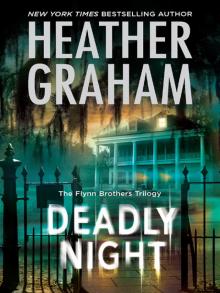 Deadly Night
Deadly Night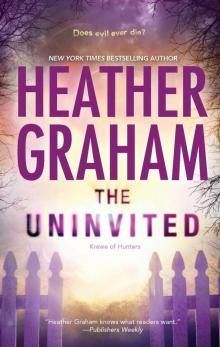 The Uninvited
The Uninvited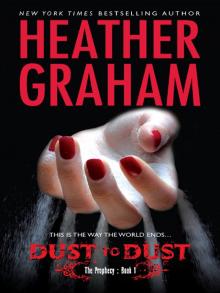 Dust to Dust
Dust to Dust Heart of Evil
Heart of Evil A Perfect Obsession
A Perfect Obsession The Keepers
The Keepers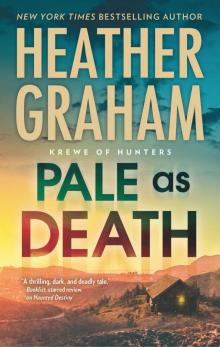 Pale as Death
Pale as Death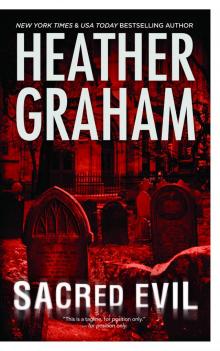 Phantom Evil
Phantom Evil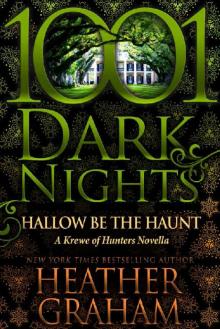 Hallow Be the Haunt
Hallow Be the Haunt Night of the Wolves
Night of the Wolves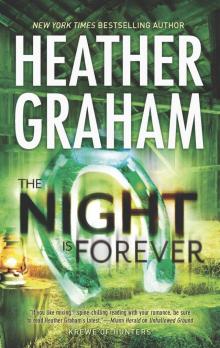 The Night Is Forever
The Night Is Forever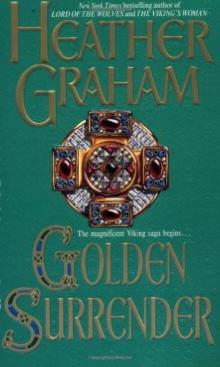 Golden Surrender
Golden Surrender Kiss of Darkness
Kiss of Darkness Beneath a Blood Red Moon
Beneath a Blood Red Moon A Dangerous Game
A Dangerous Game Ghost Shadow
Ghost Shadow Long, Lean, and Lethal
Long, Lean, and Lethal Fade to Black
Fade to Black The Rising
The Rising And One Wore Gray
And One Wore Gray Rebel
Rebel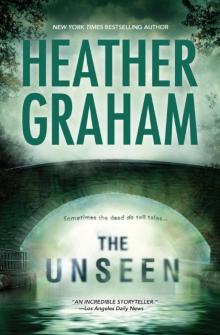 The Unseen
The Unseen The Night Is Watching
The Night Is Watching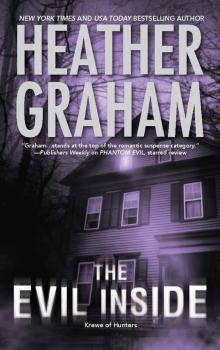 The Evil Inside
The Evil Inside The Unspoken
The Unspoken The Night Is Alive
The Night Is Alive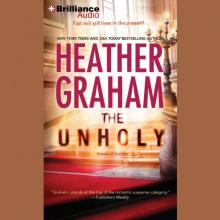 The Unholy
The Unholy Nightwalker
Nightwalker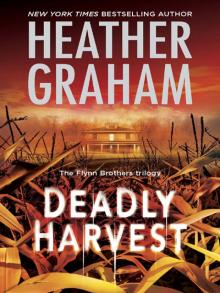 Deadly Harvest
Deadly Harvest An Angel for Christmas
An Angel for Christmas A Pirate's Pleasure
A Pirate's Pleasure American Drifter
American Drifter Realm of Shadows
Realm of Shadows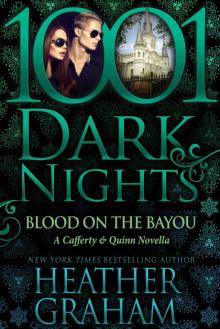 Blood on the Bayou
Blood on the Bayou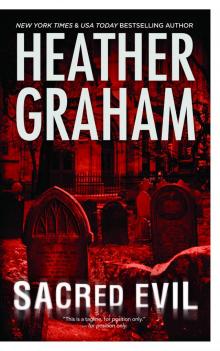 Sacred Evil
Sacred Evil Dying to Have Her
Dying to Have Her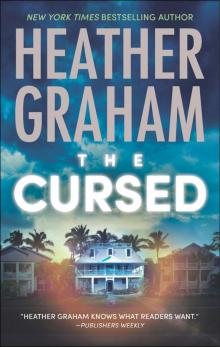 The Cursed
The Cursed Captive
Captive Hurricane Bay
Hurricane Bay Drop Dead Gorgeous
Drop Dead Gorgeous Ghost Memories
Ghost Memories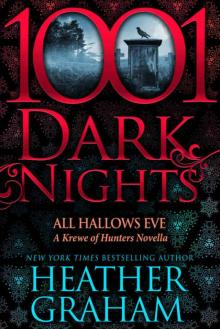 All Hallows Eve
All Hallows Eve Dying Breath
Dying Breath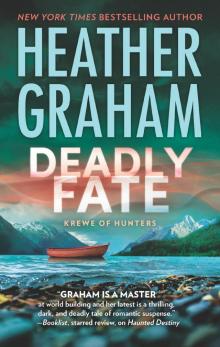 Deadly Fate
Deadly Fate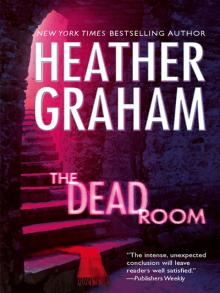 The Dead Room
The Dead Room Lord of the Wolves
Lord of the Wolves Ghost Night
Ghost Night Ghost Walk
Ghost Walk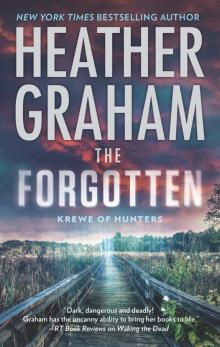 The Forgotten
The Forgotten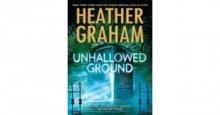 Unhallowed Ground
Unhallowed Ground One Wore Blue
One Wore Blue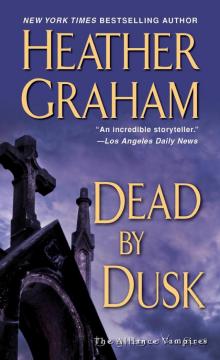 Dead By Dusk
Dead By Dusk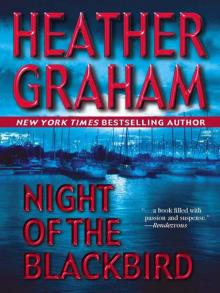 Night of the Blackbird
Night of the Blackbird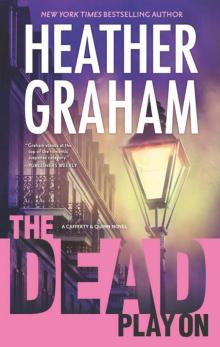 The Dead Play On
The Dead Play On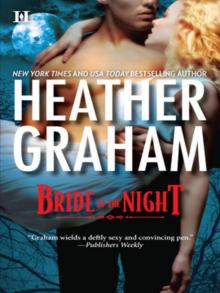 Bride of the Night
Bride of the Night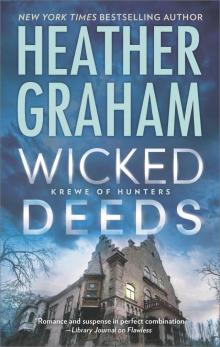 Wicked Deeds
Wicked Deeds The Forbidden
The Forbidden Triumph
Triumph Out of the Darkness
Out of the Darkness Love Not a Rebel
Love Not a Rebel The Last Noel
The Last Noel Tall, Dark, and Deadly
Tall, Dark, and Deadly The Death Dealer
The Death Dealer Dead on the Dance Floor
Dead on the Dance Floor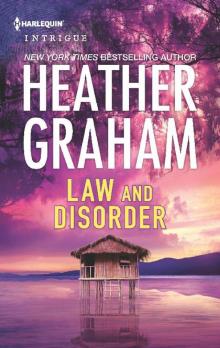 Law and Disorder
Law and Disorder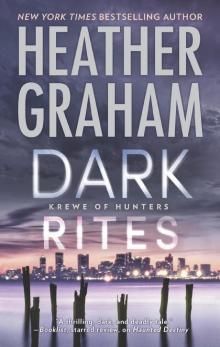 Dark Rites
Dark Rites New Year's Eve
New Year's Eve Hostage At Crystal Manor
Hostage At Crystal Manor And One Rode West
And One Rode West Home in Time for Christmas
Home in Time for Christmas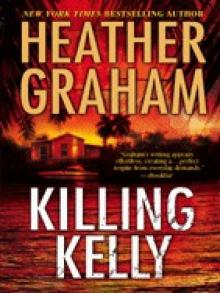 Killing Kelly
Killing Kelly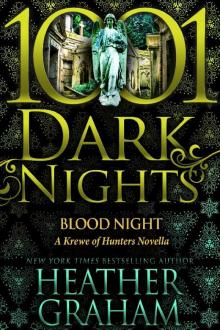 Blood Night
Blood Night Tangled Threat (Mills & Boon Heroes)
Tangled Threat (Mills & Boon Heroes)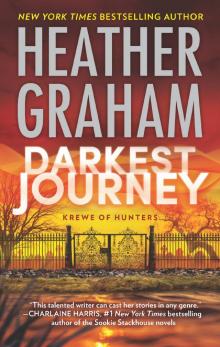 Darkest Journey
Darkest Journey Glory
Glory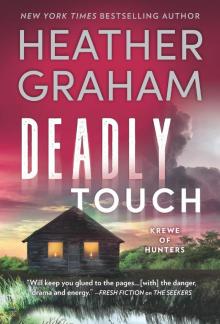 Deadly Touch
Deadly Touch An Unexpected Guest
An Unexpected Guest Night of the Vampires
Night of the Vampires Seize the Wind
Seize the Wind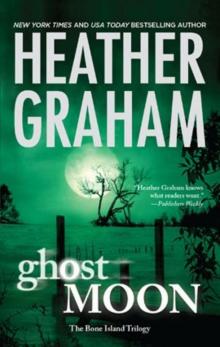 Ghost Moon
Ghost Moon The Vision
The Vision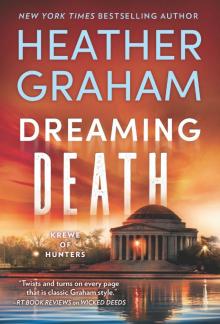 Dreaming Death
Dreaming Death Conspiracy to Murder
Conspiracy to Murder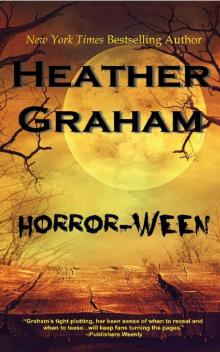 Horror-Ween (Krewe of Hunters)
Horror-Ween (Krewe of Hunters)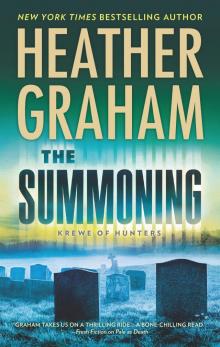 The Summoning
The Summoning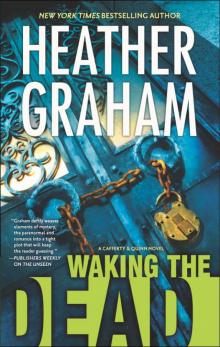 Waking the Dead
Waking the Dead Danger in Numbers
Danger in Numbers The Hidden
The Hidden Sweet Savage Eden
Sweet Savage Eden Tangled Threat ; Suspicious
Tangled Threat ; Suspicious Mother's Day, the Krewe, and a Really Big Dog
Mother's Day, the Krewe, and a Really Big Dog Picture Me Dead
Picture Me Dead The Killing Edge
The Killing Edge St. Patrick's Day
St. Patrick's Day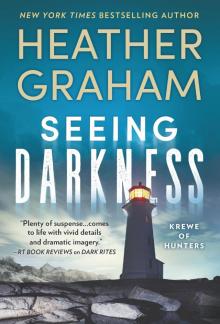 Seeing Darkness
Seeing Darkness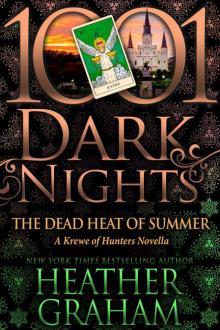 The Dead Heat of Summer: A Krewe of Hunters Novella
The Dead Heat of Summer: A Krewe of Hunters Novella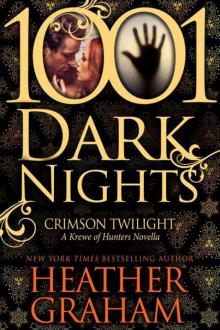 Crimson Twilight
Crimson Twilight Haunted Destiny
Haunted Destiny Devil's Mistress
Devil's Mistress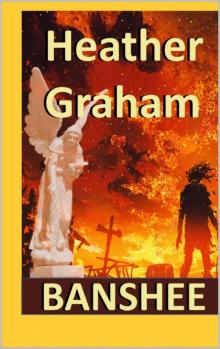 Banshee
Banshee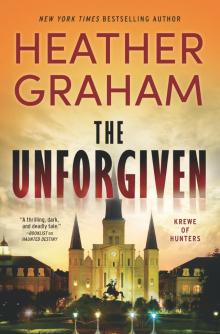 The Unforgiven
The Unforgiven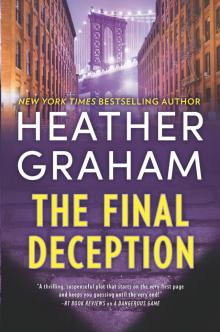 The Final Deception
The Final Deception A Horribly Haunted Halloween
A Horribly Haunted Halloween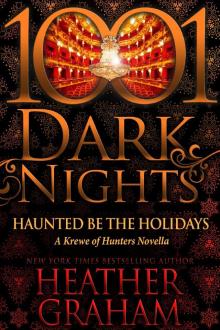 Haunted Be the Holidays
Haunted Be the Holidays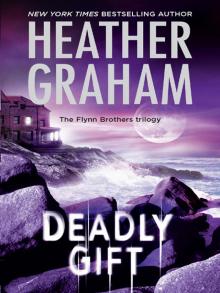 Deadly Gift
Deadly Gift Easter, the Krewe and Another Large White Rabbit
Easter, the Krewe and Another Large White Rabbit Haunted
Haunted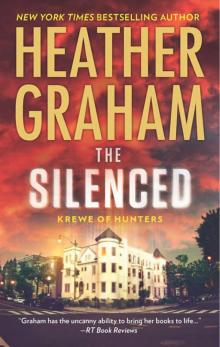 The Silenced
The Silenced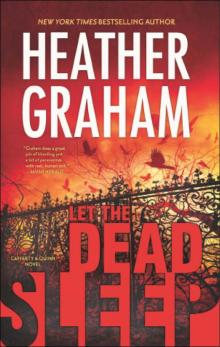 Let the Dead Sleep
Let the Dead Sleep Christmas, the Krewe, and Kenneth
Christmas, the Krewe, and Kenneth Big Easy Evil
Big Easy Evil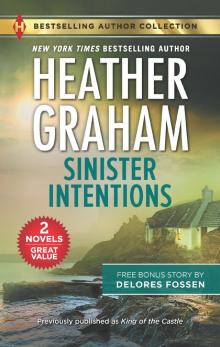 Sinister Intentions & Confiscated Conception
Sinister Intentions & Confiscated Conception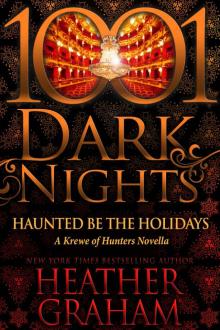 Haunted Be the Holidays: A Krewe of Hunters Novella
Haunted Be the Holidays: A Krewe of Hunters Novella Blood Red
Blood Red A Perilous Eden
A Perilous Eden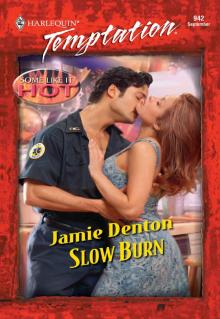 Slow Burn
Slow Burn Strangers In Paradise
Strangers In Paradise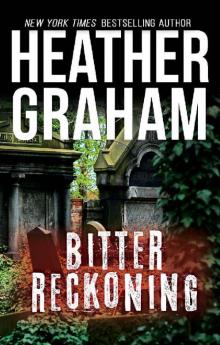 Bitter Reckoning
Bitter Reckoning Krewe of Hunters, Volume 1: Phantom Evil ; Heart of Evil ; Sacred Evil ; The Evil Inside
Krewe of Hunters, Volume 1: Phantom Evil ; Heart of Evil ; Sacred Evil ; The Evil Inside Do You Fear What I Fear?
Do You Fear What I Fear? The Face in the Window
The Face in the Window Krewe of Hunters, Volume 3: The Night Is WatchingThe Night Is AliveThe Night Is Forever
Krewe of Hunters, Volume 3: The Night Is WatchingThe Night Is AliveThe Night Is Forever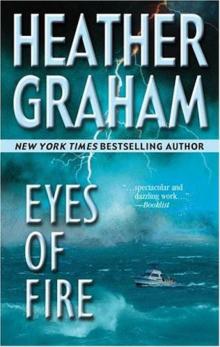 Eyes of Fire
Eyes of Fire Apache Summer sb-3
Apache Summer sb-3 Sensuous Angel
Sensuous Angel In the Dark
In the Dark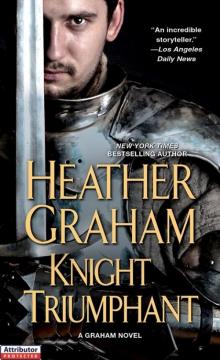 Knight Triumphant
Knight Triumphant Hours to Cherish
Hours to Cherish Tender Deception
Tender Deception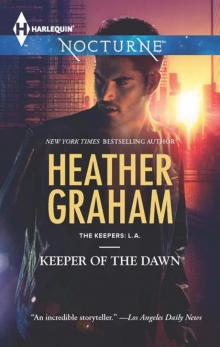 Keeper of the Dawn tkl-4
Keeper of the Dawn tkl-4 Apache Summer
Apache Summer Between Roc and a Hard Place
Between Roc and a Hard Place Echoes of Evil
Echoes of Evil The Game of Love
The Game of Love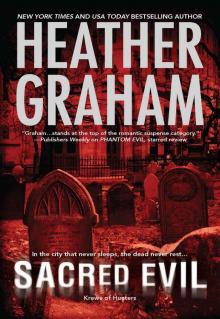 Sacred Evil (Krewe of Hunters)
Sacred Evil (Krewe of Hunters) Bougainvillea
Bougainvillea Tender Taming
Tender Taming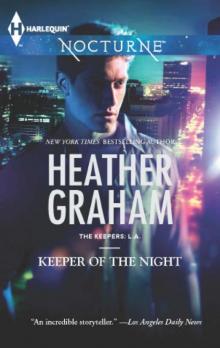 Keeper of the Night (The Keepers: L.A.)
Keeper of the Night (The Keepers: L.A.) Lonesome Rider and Wilde Imaginings
Lonesome Rider and Wilde Imaginings Lucia in Love
Lucia in Love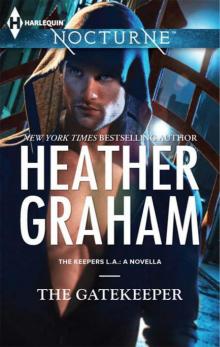 The Gatekeeper
The Gatekeeper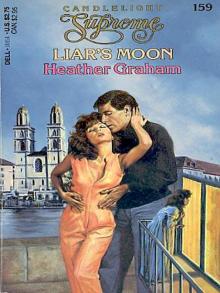 Liar's Moon
Liar's Moon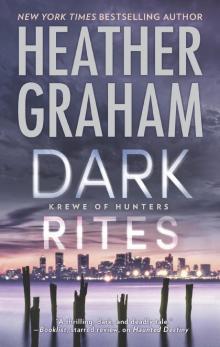 Dark Rites--A Paranormal Romance Novel
Dark Rites--A Paranormal Romance Novel A Season for Love
A Season for Love Krewe of Hunters, Volume 6: Haunted Destiny ; Deadly Fate ; Darkest Journey
Krewe of Hunters, Volume 6: Haunted Destiny ; Deadly Fate ; Darkest Journey Keeper of the Dawn (The Keepers: L.A.)
Keeper of the Dawn (The Keepers: L.A.)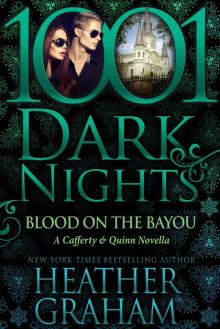 Blood on the Bayou: A Cafferty & Quinn Novella
Blood on the Bayou: A Cafferty & Quinn Novella Double Entendre
Double Entendre A Perfect Obsession--A Novel of Romantic Suspense
A Perfect Obsession--A Novel of Romantic Suspense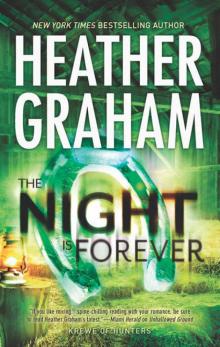 The Night Is Forever koh-11
The Night Is Forever koh-11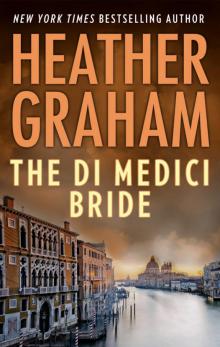 The Di Medici Bride
The Di Medici Bride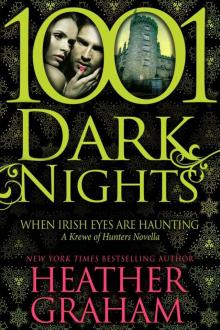 When Irish Eyes Are Haunting: A Krewe of Hunters Novella
When Irish Eyes Are Haunting: A Krewe of Hunters Novella The Keepers: Christmas in Salem: Do You Fear What I Fear?The Fright Before ChristmasUnholy NightStalking in a Winter Wonderland (Harlequin Nocturne)
The Keepers: Christmas in Salem: Do You Fear What I Fear?The Fright Before ChristmasUnholy NightStalking in a Winter Wonderland (Harlequin Nocturne)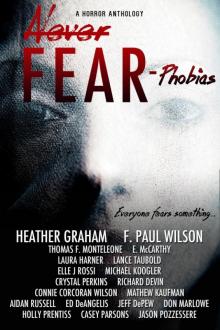 Never Fear
Never Fear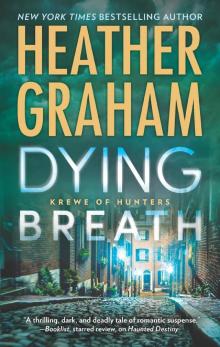 Dying Breath--A Heart-Stopping Novel of Paranormal Romantic Suspense
Dying Breath--A Heart-Stopping Novel of Paranormal Romantic Suspense If Looks Could Kill
If Looks Could Kill This Rough Magic
This Rough Magic Heather Graham's Christmas Treasures
Heather Graham's Christmas Treasures Hatfield and McCoy
Hatfield and McCoy The Trouble with Andrew
The Trouble with Andrew Never Fear - The Tarot: Do You Really Want To Know?
Never Fear - The Tarot: Do You Really Want To Know?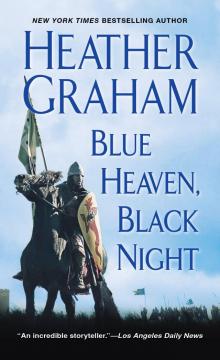 Blue Heaven, Black Night
Blue Heaven, Black Night Forbidden Fire
Forbidden Fire Come the Morning
Come the Morning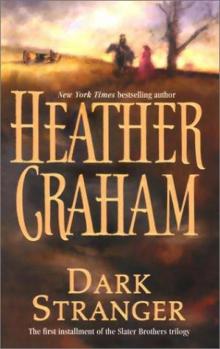 Dark Stranger sb-4
Dark Stranger sb-4 Lie Down in Roses
Lie Down in Roses Red Midnight
Red Midnight Krewe of Hunters Series, Volume 5
Krewe of Hunters Series, Volume 5 Night, Sea, And Stars
Night, Sea, And Stars Snowfire
Snowfire Quiet Walks the Tiger
Quiet Walks the Tiger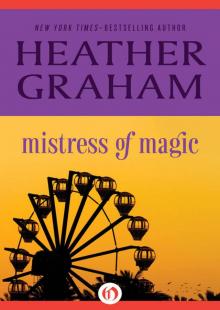 Mistress of Magic
Mistress of Magic For All of Her Life
For All of Her Life Runaway
Runaway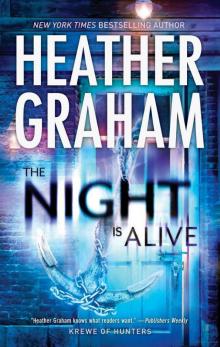 The Night Is Alive koh-10
The Night Is Alive koh-10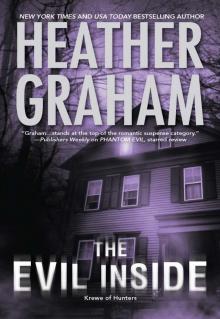 The Evil Inside (Krewe of Hunters)
The Evil Inside (Krewe of Hunters)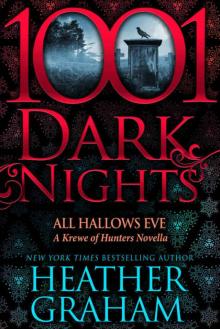 All Hallows Eve: A Krewe of Hunters Novella (1001 Dark Nights)
All Hallows Eve: A Krewe of Hunters Novella (1001 Dark Nights) Tomorrow the Glory
Tomorrow the Glory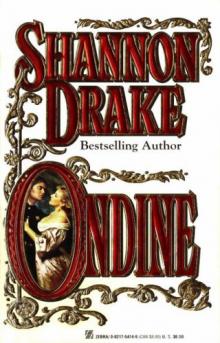 Ondine
Ondine Angel of Mercy & Standoff at Mustang Ridge
Angel of Mercy & Standoff at Mustang Ridge Bride of the Tiger
Bride of the Tiger When Next We Love
When Next We Love Heather Graham Krewe of Hunters Series, Volume 4
Heather Graham Krewe of Hunters Series, Volume 4 A Season of Miracles
A Season of Miracles Realm of Shadows (Vampire Alliance)
Realm of Shadows (Vampire Alliance) When We Touch
When We Touch Serena's Magic
Serena's Magic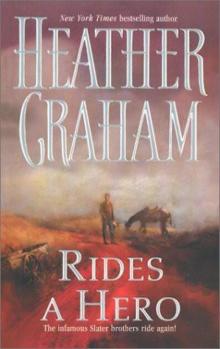 Rides a Hero sb-2
Rides a Hero sb-2 All in the Family
All in the Family Handful of Dreams
Handful of Dreams A Stranger in the Hamptons
A Stranger in the Hamptons Krewe of Hunters, Volume 2: The Unseen ; The Unholy ; The Unspoken ; The Uninvited
Krewe of Hunters, Volume 2: The Unseen ; The Unholy ; The Unspoken ; The Uninvited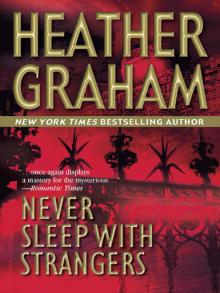 Never Sleep With Strangers
Never Sleep With Strangers Eden's Spell
Eden's Spell A Magical Christmas
A Magical Christmas Forever My Love
Forever My Love King of the Castle
King of the Castle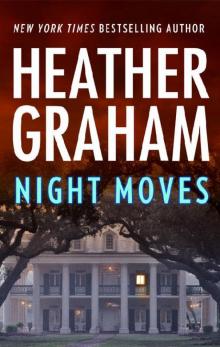 Night Moves (60th Anniversary)
Night Moves (60th Anniversary) The Island
The Island Borrowed Angel
Borrowed Angel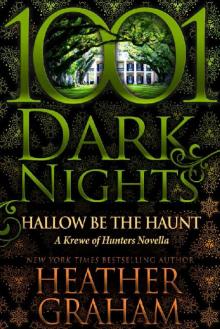 Hallow Be the Haunt: A Krewe of Hunters Novella
Hallow Be the Haunt: A Krewe of Hunters Novella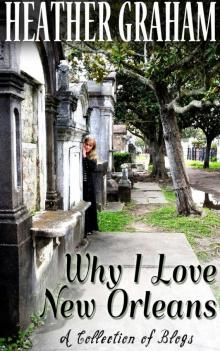 Why I Love New Orleans
Why I Love New Orleans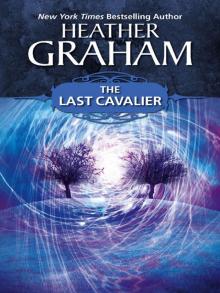 The Last Cavalier
The Last Cavalier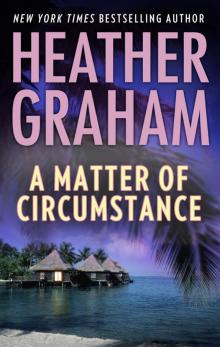 A Matter of Circumstance
A Matter of Circumstance Heather Graham's Haunted Treasures
Heather Graham's Haunted Treasures Tempestuous Eden
Tempestuous Eden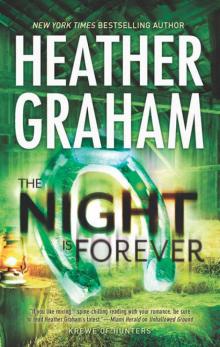 Krewe 11 - The Night Is Forever
Krewe 11 - The Night Is Forever